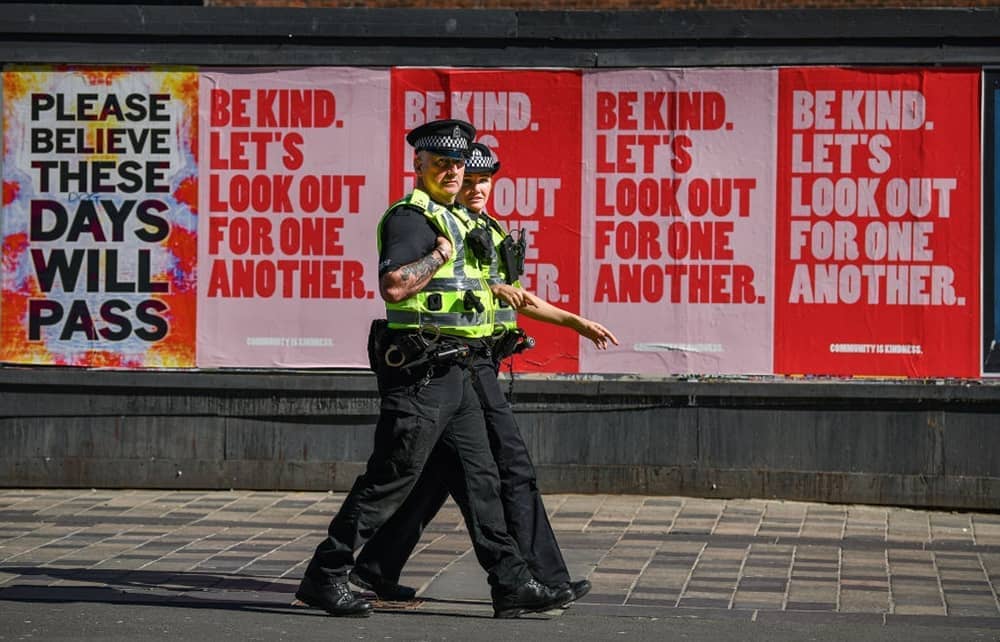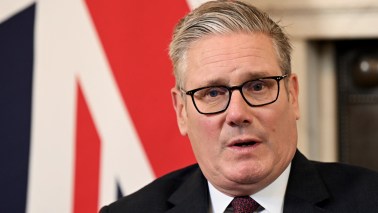Why we allowed it
Sir: In her article ‘Why didn’t more people resist lockdown?’ (3 September), Lionel Shriver partially answers her own question. Priti Patel told us it was our public duty to shop our neighbours if they had three friends to tea, and our previously invisible police force started to patrol parks and beaches with unprecedented vigour, with a threat of £1,000 fines for malfeasance. There was no eagerness, but the public were glued to the nightly broadcasts from No. 10, where the PM told us we would be little better than murderers if we didn’t obey the diktats.
The fear all this created is still evident as I walk round Sainsbury’s every week and see masked shoppers disinfecting their trollies as if their life depended on it.
Martin Henry
Good Easter, Essex
Violating our freedom
Sir: Lee Cain defends the dictatorship of which he was part (as No. 10’s director of communications) by asking us if we believe that without lockdown, ‘people would have voluntarily stayed at home and avoided social contacts, as in Sweden, so restrictions were not needed’? (Letters, 3 September). Yes, we do. And it says something about what is wrong with Britain that this violation of our freedom is defended by a ‘director of communications’, not by a minister.
Michael Upton
Edinburgh
Worst-case scenarios
Sir: In his Diary (3 September), Michael Gove eulogises about the importance of ‘worst-case scenarios’ being brought to the prime minister. Isn’t it the case though that ‘worst-case scenarios’ are what led the UK government to make two of its most serious policy mistakes? Namely, enforcing repeated lockdowns and signing up to the Northern Ireland Protocol. As such, any PM faced with a policy recommendation based on a ‘worst-case scenario’ would be well advised to do precisely the opposite.
Adam Kelly
Leeds, West Yorkshire
Brum transformed
Sir: Contrary to Stuart Jeffries’s view (Books, 27 August), Birmingham civic leaders were well aware in the 1970s that their city was too dependent on car manufacturing and were determined to do something about it. Indeed they’d been warned on a trip to their twin city Frankfurt that manufacturing jobs would sink to only 20 per cent of the total and that the future lay in service industries. Their first effort was the National Exhibition Centre, built in Solihull with Birmingham money and opened by the Queen in 1976. It was an immediate success. However, a survey soon revealed that businesspeople who visited via the fine new station were going home the same day and spending no money in Brum itself. We were told there wasn’t enough for well-heeled visitors to do in the city. One suggestion was to upgrade the City of Birmingham Symphony Orchestra under a new conductor, 25-year-old Simon Rattle, but he’d only come if we promised the CBSO a whopping £1 million a year. I voted for that. He also wanted a new concert hall; construction started in 1984, and it was opened as part of the International Convention Centre in 1991.
My old ward of Northfield (once home to thousands of car workers) has one of the lowest claimant counts in the region. The recent Commonwealth Games showed how the city has been transformed. Anyone who doubts it should go and see for themselves.
Edwina Currie Jones
Birmingham City Councillor 1975-1986
High Peak, Derbyshire
Franco-British hostility
Sir: Simon Kuper indicated (‘What Macron wants’, 3 September) that the only Franco-British hostilities after 1815 were at Mers el Kebir in July 1940, when a British fleet incapacitated a French one (which had refused either to join them or to assume neutrality). There was a good deal more than that. In September 1940 the submarine Bévéziers torpedoed HMS Resolution off Dakar. In June 1941 Vichy French forces inflicted several thousand casualties on Allied troops in Syria. They also bombed Gibraltar, and the British captured Vichy French-controlled Madagascar, which the Japanese had been using to facilitate submarine activity in the Indian Ocean. France has long exhibited considerable ambivalence about England. Napoleon chose exile in Chislehurst, De Gaulle could not tolerate the idea of us in the Common Market, Macron hates us leaving it.
Charles Harris
Chipping Norton, Oxfordshire
Pile of work
Sir: Alan Rodger’s letter (3 September) about the treatment of haemorrhoids with hot irons reminded me of my summer job in 1973 as a theatre orderly in Bangor General Hospital. I had the pleasure of ‘prepping’ several bottoms for the procedure using a brass razor. I also recall a young registrar, who later became a CBE and chairman of Papworth Hospital, claiming and proving that he could do a vasectomy in four minutes; and my colleagues putting drops of anaesthetic into bread and feeding it to the seagulls, with fatal consequences in mid-air.
Allan Sutherland
Stonehaven
Living with Moxley
Sir: In 2010 I became the keeper of a six-month-old pure-bred Bengal called Moxley (Notes on Bengal cats, 3 September). I was his third keeper (no one ‘owns’ Bengals); the previous two had given up within weeks. We spent eight years together, and the best way to describe him is that he was like Damian in the original Omen film – he appeared sweet but was a demon. If he wanted to get my attention, he would simply smash something. Sadly he died of a heart attack three years ago, and I have a lovely normal tabby instead. My house is much calmer, but it’s just not the same.
Chris Warr
Halesowen, West Midlands






Comments